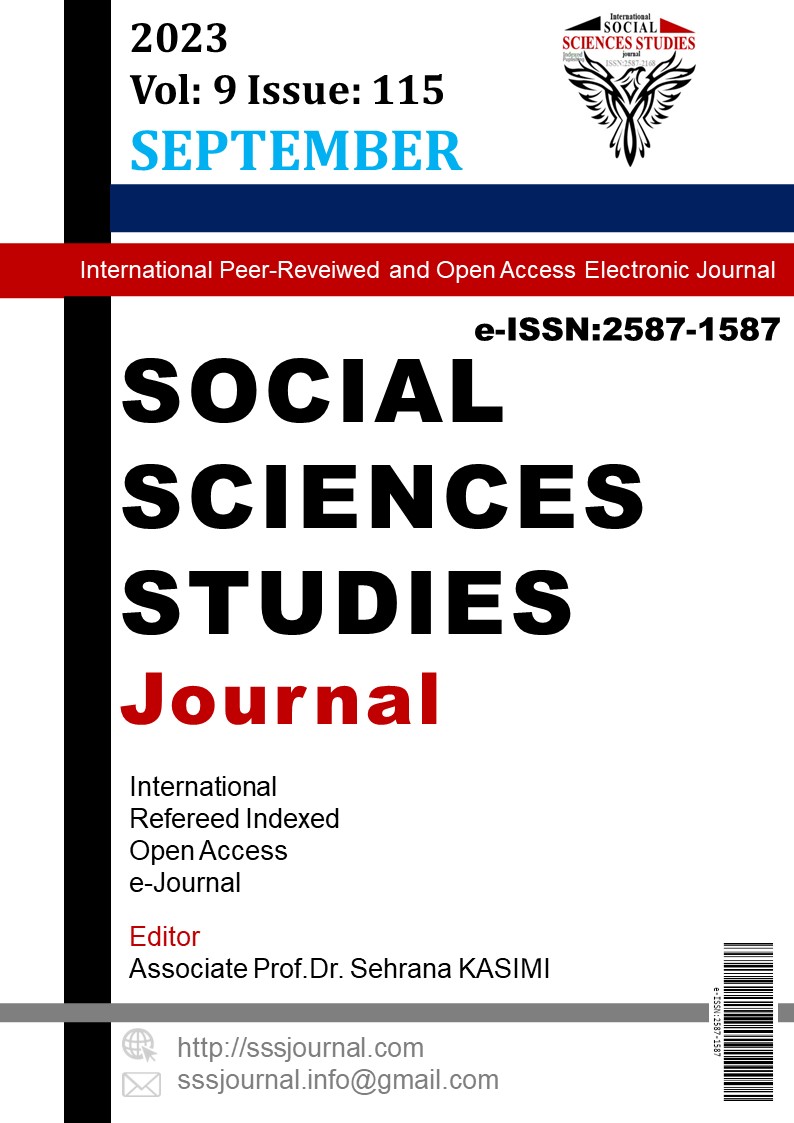Author :
Abstract
Bu çalışma Öğretmenlerin Kolektif Yeterlik Algılarının belirlenmesi amacıyla 2022-2023 eğitim-öğretim yılında, Mersin ili Silifke ilçesinde bulunmakta olan resmi okullarda görev yapan 327 öğretmen ile yürütülmüştür. Bu araştırma öğretmenlerin kolektif yeterlik algılarının belirlenmesi amacıyla yapılmıştır. Araştırmaya 327 öğretmenin katılmıştır. Bu öğretmenlerin 135’i (%41,0) erkek, 192’si (%58,4) kadındır. Öğretmenlerin 92’si (%28,0) 26-35, 191’i (%58,1) 36-45, 46’sı (%14,0) 45 ve üzeri yaş aralığındadır. Türkçe branşında 32 (%9,7), Matematik branşında 48 (%14,6), Fen Bilgisi branşında 41 (%12,5), İngilizce branşında 13 (%4,0) ve diğer branşlarda 192 (%59,3) öğretmen bulunmaktadır. Öğretmenlerin 36’sı (%10,9) 1-5, 115’i (%35,0) 6-11, 83’ü (%25,2) 12-18 ve 95’i (%28,9) 18 üzeri yıl kıdeme sahiptir. Araştırma sonuçlarına göre öğretmenlerin kolektif yeterlik algıları cinsiyetlerine göre farklılaşmamaktadır. Yine araştırma sonuçlarına göre öğretmenlerin kolektif yeterlik algıları branşlarına göre farklılaşmamaktadır. Araştırma sonuçlarına göre öğretmenlerin kolektif yeterlik algıları mesleki kıdemlerine göre farklılaşmamakta iken yaşlarına göre farklılaşmaktadır.
Keywords
Abstract
This study was carried out with 327 teachers working in public schools in Silifke district of Mersin province in the 2022-2023 academic year in order to determine the Collective Efficiency Perceptions of Teachers. This research was conducted to determine teachers' collective efficacy perceptions. 327 teachers participated in the research. Of these teachers, 135 (41.0%) are male and 192 (58.4%) are female. 92 (28.0%) of the teachers are in the age range of 26-35, 191 (58.1%) are in the age range of 36-45, 46 (14.0%) are in the age range of 45 and over. 32 (9.7%) in Turkish, 48 (14.6%) in Mathematics, 41 (12.5%) in Science, 13 (4.0%) in English and 192 (59.3%) in other branches There is a teacher. 36 (10.9%) teachers were 1-5, 115 (35.0%) 6-11, 83 (25.2%) 12-18 and 95 (28.9%) 18 has more than one year of seniority. According to the results of the research, teachers' collective efficacy perceptions do not differ according to their gender. Again, according to the results of the research, teachers' collective efficacy perceptions do not differ according to their branches. According to the results of the research, while teachers' collective efficacy perceptions do not differ according to their professional seniority, they differ according to their ages.





